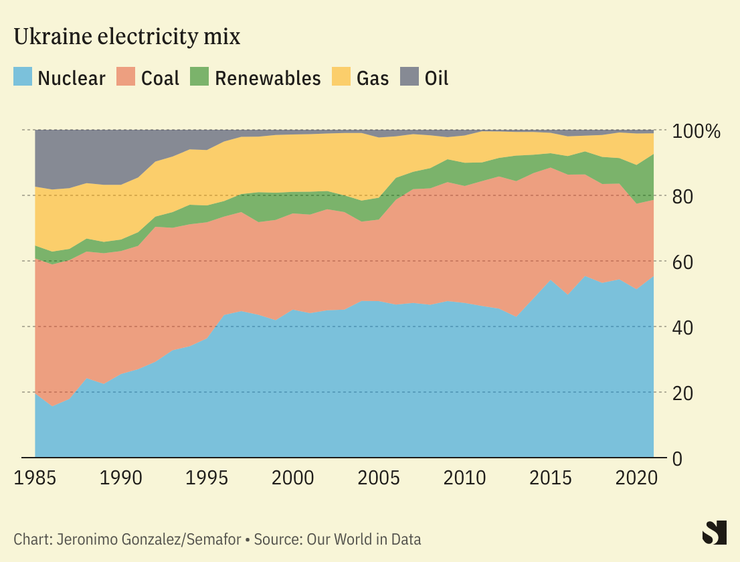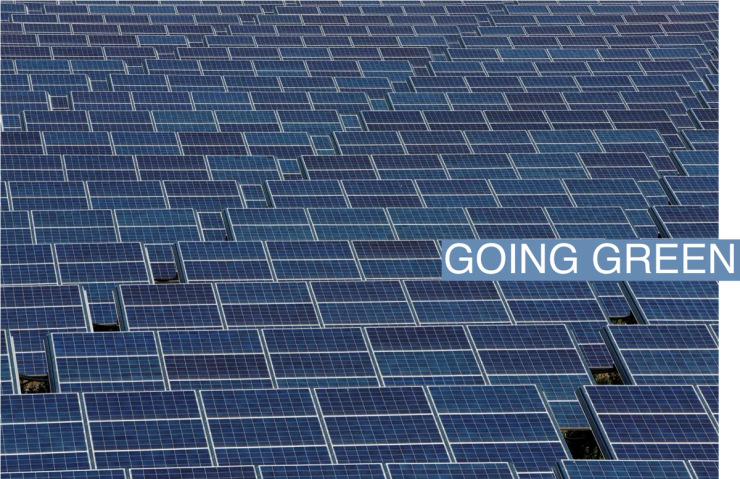The News
Growing demand for renewables in both South Africa and Ukraine illustrates their potential in countries grappling with instability.
Both Pretoria and Kyiv — the former fighting corruption and an energy crisis, and the latter battling against Russia’s invasion — have prioritized clean-energy sources in their search for reliable power supplies.
In this article:
The View From Ukraine
Despite the war raging within its borders, Ukraine has built more onshore wind turbines this year than the U.K., a report from The Guardian shows. The new Tyligulska wind farm is likely the first to be built in a conflict zone, the newspaper writes, and is generating enough electricity to power about 200,000 homes some 60 miles from the front line of the country’s conflict with Russia.

The site is on track to be the largest wind farm in Eastern Europe, the head of Ukraine’s largest energy investor DTEK told The Guardian, adding that it is “a symbol of Ukraine’s resistance to Russian attempts to freeze Ukraine into submission.”
Russia, which launched a full-scale invasion of Ukraine early last year, has repeatedly targeted the country’s critical energy infrastructure, and occupies Ukraine’s Zaporizhzhia nuclear plant. The facility has now been disconnected from Ukraine’s grid, but previously powered about 20% of the country.
The View From South Africa
Electricity shortages in South Africa have led to record demands for solar installations in Cape Town, Bloomberg reports.
More than 2,300 city residents have requested solar power this year, by the end of April, a rise that come as the country turns to load-shedding — coordinated daily blackouts that aim to prevent the electricity grid from overloading.
As of April, Cape Town was facing around 10 hours per day without electricity, The Telegraph reports. Officials for Eskom, the country’s power generator, are warning that with winter approaching the situation could become even more dire.
Eskom is also facing breakdowns at its coal-fired power plants, an issue that former CEO Andre de Ruyter alleged is related to Pretoria’s inability to crack down on corruption that is draining the power service of its funding.
Step Back
Renewables have long been touted as a solution for countries that are low-income, facing instability, or relying on fossil-fuel imports for power. According to the World Bank, developing nations are increasingly drawing on private investment to accelerate their clean energy projects.
The International Renewable Energy Agency found that global financing for renewable projects doubled between 2010 and 2017.


